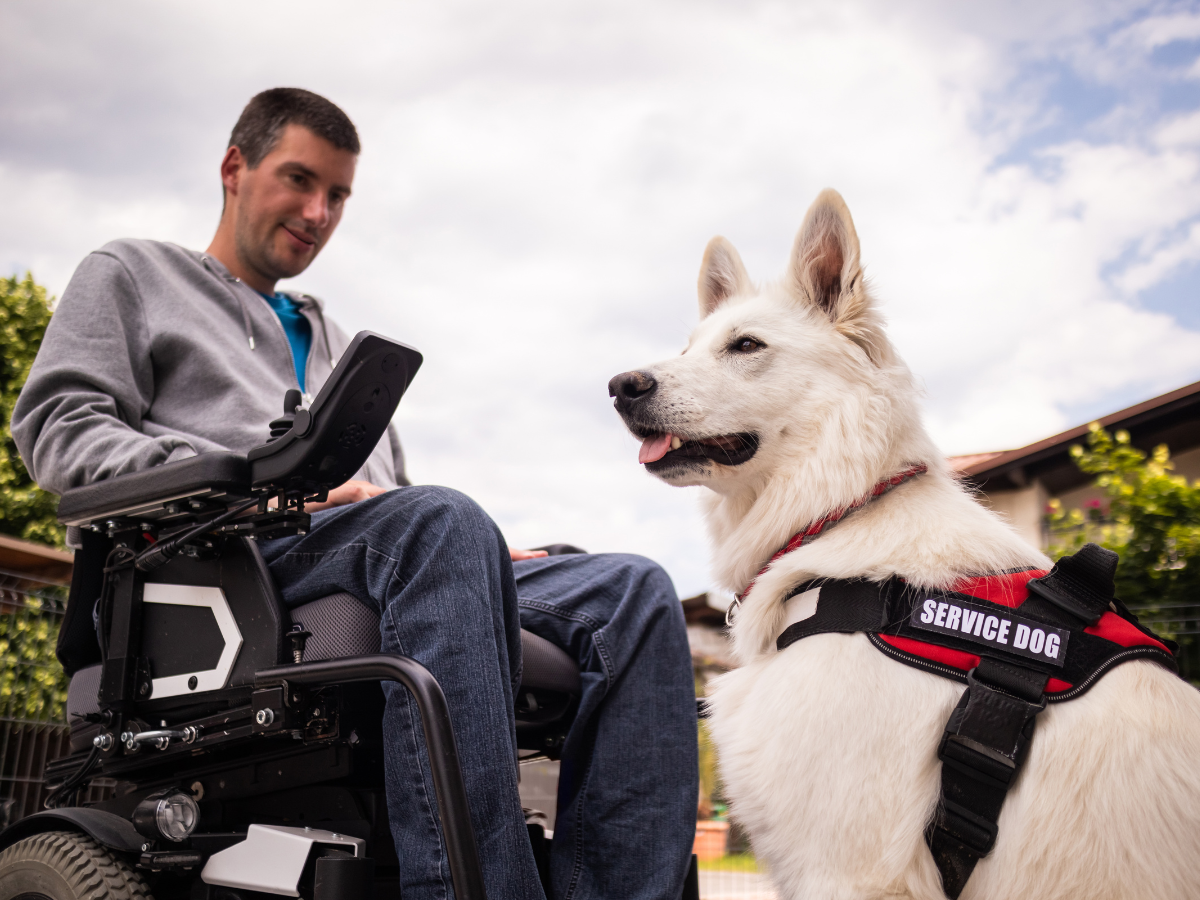Service Animals in Seattle: Everything Landlords Need to Know
Service animals play a crucial role in assisting individuals with disabilities, providing not just companionship but also essential support in daily activities. For landlords in Seattle, understanding the laws and regulations surrounding service animals is vital. This article aims to clarify the distinctions between service animals and pets, outline landlords' rights and responsibilities, and provide guidance on documentation and lease agreements.

Introduction to Service Animals in Seattle
As the awareness of disability rights grows, so does the importance of understanding the role of service animals in housing situations. In Seattle, landlords must navigate a complex landscape of service animal law. This article serves as a comprehensive guide for landlords, ensuring they are informed and compliant with local regulations.
In Seattle, the legal definition of a service animal is primarily focused on dogs that have been individually trained to assist a person with a disability.
The presence of service animals in rental properties can enhance the quality of life for tenants with disabilities, fostering a sense of community and belonging. Landlords who embrace these animals can benefit from positive tenant relationships and potentially lower turnover rates, which are important benefits of effective property management.
Landlords need to establish clear policies regarding service animals, including documentation requirements and guidelines for behavior, to ensure that all tenants feel safe and respected in their living environment. By being proactive, they can create a harmonious atmosphere that supports the needs of all residents while adhering to the law.
What is Considered a Service Animal Versus a Pet?
The primary distinction between service animals and pets lies in their training and purpose. Under the Americans with Disabilities Act (ADA), a service animal is a dog that has been trained to perform tasks for a person with a disability. These tasks can include guiding individuals who are visually impaired, alerting those who are hearing impaired, or providing support during a medical emergency.
In contrast, pets do not have specialized training to assist individuals with disabilities. While they may provide emotional support and companionship, they do not qualify as service animals under the law. This distinction is crucial for landlords, as it determines the legal obligations they must fulfill regarding housing and accommodation.
Can a Landlord Deny Service Animals in Seattle?
Generally, landlords cannot deny a service animal that meets the legal definition outlined by the ADA. However, there are circumstances in which a landlord may refuse a service animal. For instance, if the animal poses a direct threat to the health or safety of others or if it causes significant property damage, a landlord may have grounds to deny the animal.
Landlords should approach each situation on a case-by-case basis, considering both the rights of the tenant and the circumstances surrounding the service animal. Clear communication with tenants can help clarify any concerns and facilitate a smoother process.
Additional Service Animal Requirements
In addition to understanding the definition of service animals, landlords in Seattle should be aware of additional requirements that may apply. For example, while service animals are generally allowed in all areas where the public is permitted, landlords may require that the animal be under control at all times and that the owner be responsible for the animal's behavior.
Landlords may wish to implement reasonable rules regarding cleanliness and maintenance of the property. However, these rules should not be so restrictive that they effectively deny the tenant's right to have a service animal. Striking a balance between property management and tenant rights is essential.
What Documentation is Needed for a Service Animal?
While the ADA does not require service animal owners to provide documentation, many landlords request some form of verification to confirm the animal's status. This may include a letter from a healthcare provider indicating the need for the service animal due to a disability. Such documentation can help clarify the tenant's rights and the necessity of the animal's presence.
Landlords should be cautious not to impose overly burdensome requirements for documentation, as this can lead to legal issues. They should focus on reasonable requests that align with the tenant's rights under the law.
How Residents Should Submit Documentation for a Service Animal
When submitting documentation for a service animal, residents should follow a clear and respectful process. It is recommended that they provide the necessary paperwork in writing, ensuring that all relevant information is included. This may involve submitting a letter from a licensed healthcare professional that outlines the need for the service animal.
Residents should also be prepared to discuss their needs with the landlord, as open communication can help alleviate any concerns. Providing documentation promptly and professionally can facilitate a smoother approval process and foster a positive landlord-tenant relationship.
When Can a Service Animal be Added to a Lease?
Service animals can typically be added to a lease agreement at any time, especially if the tenant acquires the animal after signing the lease. However, tenants should notify their landlord as soon as possible about the need for a service animal. This allows landlords to make any necessary accommodations and adjustments to the lease.
Landlords should consider including clauses in their lease agreements that address service animals. This can help clarify expectations and responsibilities for both parties, ensuring that everyone is on the same page regarding the presence of the animal in the rental property.
Final Thoughts: Service Animals in Seattle
Understanding the intricacies of service animals is essential for landlords in Seattle. By recognizing the legal definitions, rights, and responsibilities associated with service animals, landlords can create a welcoming and compliant environment for tenants with disabilities. This not only fosters inclusivity but also protects landlords from potential legal repercussions.
Ultimately, fostering a respectful relationship with tenants who require service animals not only complies with legal obligations but also enhances the overall community atmosphere. If you’d rather let professionals handle these complex situations, Evernest’s local team is ready to help. Reach out to our Seattle property management company today!













